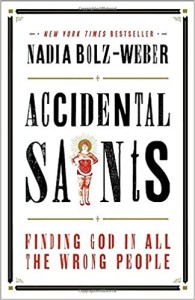From the Rector
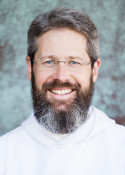 Fifteen In
Fifteen In
This past week I came to a couple of unexpected realizations. One is that my diaconal ordination anniversary had arrived before I knew it, and that this time it meant that I had been ordained for fifteen years. The second was that if I am going to retire after the standard 30 years (I can’t imagine that I will retire at that point), I’m halfway through my time as a priest serving in a parish.
Like any milestone anniversary, it has given me the opportunity to reflect on what has been and look forward to what might be. First, it feels like I’m just getting started––it cannot be possible to have been fifteen years. I realize that I have soon-to-be sixth and eighth graders who didn’t exist when I was ordained, but really, fifteen years?
In addition to rarely realizing the passage of time (except, perhaps, in other people), I also think that part of my shock comes from my own awareness of how much I’ve had to learn, adapt, and change in my time as a priest. The cultural context that I was ordained into has changed significantly. What was assumed and expected fifteen years ago––attendance patterns, the meaning of membership, giving practices––can be assumed or expected no longer. It’s as if I keep getting called into a new church every few years even though I’ve stayed in the same tradition (the Episcopal Church) and setting (the East Bay).
Here is one marker. Several weeks after I was ordained, my boss, relieved to have an Associate back again, went on a month-long vacation. Now for those who haven’t done the math, this was 2003 and it was the General Convention in which the Episcopal Church consented to the election of the Rt. Rev. Gene Robinson to be bishop of the diocese of New Hampshire. It was a wild start to an ordained life.
As you may remember, it was a watershed moment. And it was the vanguard for stunning change, within the context of our church and our nation. Fifteen years ago it was hard to see that same-sex marriage (not simply the blessing of a union) would be a reality both sacramentally and legally. It also ushered in fifteen years of conflict, divisiveness, and lawsuits. (Just this past week the United States Supreme Court declined to hear the appeal of breakaway Episcopal churches in the diocese of South Carolina.) It has been an incredible and intense fifteen years.
At the same time, the cultural context around institutional religion has shifted. Dramatically. It is not new information that membership and participation has declined across Christian traditions in the United States. This trend has parallels across institutions throughout our society––across the board people are less likely to join an institution. But this phenomenon has been particularly felt in our area, as in our own diocese participation has waned by nearly a third over the past fifteen years.
The decline in participation is in some ways a good thing. No longer do people feel culturally bound to be Christian. On Sunday mornings at All Souls in Berkeley, people are there because they want to be. But along with that decline in participation has come more pressure to do as much or more with fewer people and less resources, because it’s not as if the troubles in the world around us have diminished in the last fifteen years. These dramatic cultural shifts have made a demanding vocation––leading people into individual and communal transformation––all the more challenging.
But here’s what has not changed, and ultimately why I have hope for the Jesus Movement for years to come. People still hunger for community, companionship, and connection. We still come close to the Wholly Other and want to know what it means. We still want to embody change in ourselves and in the world. We still long for rituals and practices that ground us and guide us and challenge us. We still yearn to give ourselves to something that is more than us. Even as the world we are a part of is rapidly changing, the life and teachings of Jesus the Christ are just as compelling as they ever have been.
So. Fifteen in. Fifteen — and hopefully many more ahead.
Peace,
Phil+
Lectio Divina
Listening Through Scripture
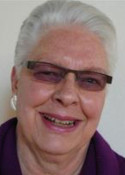 Lectio Divina, or Divine Reading, is a traditional Benedictine practice of scriptural reading and meditation. This is not traditional Bible study where we are looking for answers, but rather an opportunity to meditate on the passage and hear what God is saying to us as individuals.
Lectio Divina, or Divine Reading, is a traditional Benedictine practice of scriptural reading and meditation. This is not traditional Bible study where we are looking for answers, but rather an opportunity to meditate on the passage and hear what God is saying to us as individuals.
All Souls has a group that practices a type of Lectio Divina called “Listening Through Scripture.” We meet twice monthly, on the first and third Saturdays of month, from 4:00 PM to 5:30 PM. We read the gospel passage for the upcoming Sunday and meditate on it. We discuss the passage and how the passage intersects with our own lives.
We live in a noisy and busy world. This practice allows me to stop, to be quiet, and to listen for that still, small voice. I’m not doing Bible study and I’m not trying to parse a passage; I’m simply being quiet and waiting on God. In Lectio Divina we learn to seek God and to listen in silence.
Being part of this group has been very important to me. The trust and friendship that has been built up over the years is invaluable. To spend time with this group of seekers is a precious gift.
We have room for new members to join the group. If you think this is something you might be interested in, please contact Sharon Roberts (sharonvroberts@earthlink.net) or Stephen Southern (stpaso@mac.com). We are especially looking for members who can commit to meeting twice monthly.
From the Associate for Music
Music, Family, and the “Little Church”
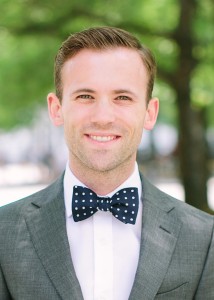 It is no secret that music plays a role in the formation and maintenance of communities. For communities of faith, this communal function is not only social but also theological, with music helping the earthly Church to unite itself as well as join the hosts of heaven in the worship of God.
It is no secret that music plays a role in the formation and maintenance of communities. For communities of faith, this communal function is not only social but also theological, with music helping the earthly Church to unite itself as well as join the hosts of heaven in the worship of God.
At All Souls, our use of music in community formation involves the participation of every worshiper in voice as well as in heart. On a typical Sunday morning, we might sing as many as ten pieces of music together, leaving perhaps one or two to the Choir. We’re not alone in valuing such full vocal participation for strengthening our sense of community. As I’ve previously written here, the tradition of congregational hymnody in English-speaking protestant churches can be traced all the way back to the singing of metrical psalms in sixteenth-century England; in one of the most famous endorsements of this practice, the Elizabethan bishop John Jewel rejoiced at how no crowd was too large or diverse to benefit from music’s capacity to bring people together, even outside the context of a formal liturgy. Jewel claimed that at the outdoor preaching venue called Paul’s Cross, “You may now sometimes see… six thousand persons, old and young… all singing together and praising God.” While we’d violate the fire code with even a fraction of that number, we can still strive to make a similarly robust noise, and, as a place that strives to be intergenerational, appreciate what Jewel saw in group singing.
But musical participation can also take more intimate forms. Even before being used liturgically, metrical psalms were sung for domestic recreation, and the overlaps between church and home could extend beyond the music being sung. As historian Beth Quitslund has recently discussed, some English protestant writers came to describe the pious family as a “little church,” and to treat psalm-singing as “the signal point of comparison between the public worship in the larger Church and the family as a natural congregation.” Not surprisingly, then, domestic contexts needed be no less conducive to the religious work that singing together could perform in public worship. In one of his funeral sermons John Donne admired how the deceased’s family would close every sabbath day “with a cheerful singing of Psalms; This Act of cheerfulness was still the last Act of that family, united in itself, and with God.”
At All Souls, we are blessed with one particular “little church,” a musical family, within our larger parish community: an extraordinary Choir and Angel Band, composed almost entirely of volunteer singers of widely varying experience and skill levels. Even though we rehearse on Wednesday evenings, I always welcome anyone to join who is willing to show up for the Sunday morning rehearsal.
But I also realize that some of us might be looking for an opportunity that seems slightly lower-key while still offering some of the community-oriented benefits of choral singing. To that end, we’re inaugurating a Summer Choir, and extending a special invitation to those who have not felt like our usual rhythm suited their own. The idea will be simple: no Wednesday rehearsal, just show up at 8:30 (for the 9am service) and/or 10:45 (for the 11:15am service) to run through some very manageable, yet wonderful, repertoire, that we will then sing in worship! Our first Summer Choir Sunday will be July 8, and a reminder announcement will come in a couple weeks.
Feel free to write to Jamie Apgar, Associate for Music (jamie@allsoulsparish.org) to share your interest, or to inquire further! We might number closer to 6 than to 6,000, but we’ll still be “singing together and praising God.”
Pentecost Challenge Update
Everyone has a Story
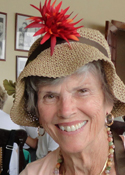 Through their newly created Higher Ground Productions, former President Barack Obama and the former First Lady Michelle Obama are planning to produce television shows and films for Netflix.
Through their newly created Higher Ground Productions, former President Barack Obama and the former First Lady Michelle Obama are planning to produce television shows and films for Netflix.
President Obama explained that the productions will be focused on telling people’s stories. He said he hopes these stories will help people see and better understand one another and ultimately help us move past the divisive discourse that has mired us down for so long.
“Michelle and I hope to cultivate and curate the talented, inspiring, creative voices who are able to promote greater empathy and understanding between peoples, and help them share their stories with the entire world.”
While we couldn’t imagine that our project would be unique, we never guessed that the Obamas would come up with the same sort of unification proposal! Perhaps the goals of the Pentecost Challenge are not quite as extensive as the Obamas’, but the underlying motivating spirit is the same.
Through the Pentecost Challenge we are asking All Soulsians to reach out to friends and relatives they have lost connection with, to rediscover common ground and understanding. We are also asking each other to reach out to new people, to form new connections and build new relationships.
And we are hoping you will share these stories of care, connection, and community.
We all have opportunities to meet and get to know new people. It is how we approach these opportunities that makes the difference. Have you ever been on a four or five hour plane trip, when you were faced with the choice of reading your book or befriending someone who looked as if they might need someone to talk to?
I must admit that it may be easier when one is a little old befuddled woman who looks as though she needs a friend herself. But, in any case, it is amazing just how much people want to tell their stories if you just take some time to listen. It may take you awhile to figure out how to begin. But just watch and wait; you’ll think of it.
“I would not have been president had I not learned very early on in my professional career the importance of stories,” said Mr. Obama.
We may not be running for president, but we can all be true to our faith!
Margaret Sparks
Watch for further updates in the “Pentecost Challenge”…Questions for you…questions for you to ask others….assumptions we make about others…
Walk With Us
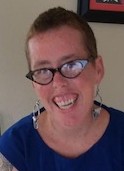 Are you up for a lovely summer evening stroll? Interested in how we might see God on the street corner, in the grocery store, at the pizza place?
Are you up for a lovely summer evening stroll? Interested in how we might see God on the street corner, in the grocery store, at the pizza place?
Join the Evangelism Committee to walk through our neighborhood and notice where we meet God and how we see Her acting in our community. We’ll be talking about sharing our faith in the world, reading poetry and scripture, and thinking about how the spirit is calling us to engage with our neighbors here in this corner of Berkeley.
Thursdays: June 21, July 12, and August 9 at 6:00 PM. For details, contact Dani Gabriel (allthepossible@gmail.com).
Summer Sunday School
 The last day of regular Sunday School was June 10th. There will be a break this Sunday the 17th, and then some wild and wonderful new things in Summer Sunday School begin on June 24th.
The last day of regular Sunday School was June 10th. There will be a break this Sunday the 17th, and then some wild and wonderful new things in Summer Sunday School begin on June 24th.
Children between preschool and 5th grade will come together at 10:10 in the Common Room in one big group to wonder about God in all sorts of creative and hands-on ways.
If you are a teenager or adult who would like to help make this happen, please reach out to Lenore (lenorefw@gmail.com).
Episcopal Peace Fellowship East Bay
The Forgotten Faithful: Christians Living in Palestine Today
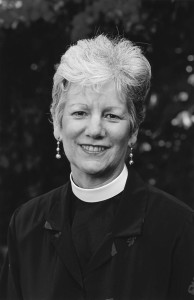 On Saturday, June 16, St. Alban’s will host a conversation with Berkeley resident, All Souls parishioner, and leader in the Episcopal Peace Fellowship’s Palestine-Israel Network, the Rev. Ann Coburn, about her most recent trip to Palestine-Israel with a group of 12 internationals. They met with Christian clergy and laity, worshiped with them, received hospitality from them, and listened to their stories and struggles. Ann also will talk about resolutions coming before General Convention and how to get involved in the work and ministry of justice for Palestinians.
On Saturday, June 16, St. Alban’s will host a conversation with Berkeley resident, All Souls parishioner, and leader in the Episcopal Peace Fellowship’s Palestine-Israel Network, the Rev. Ann Coburn, about her most recent trip to Palestine-Israel with a group of 12 internationals. They met with Christian clergy and laity, worshiped with them, received hospitality from them, and listened to their stories and struggles. Ann also will talk about resolutions coming before General Convention and how to get involved in the work and ministry of justice for Palestinians.
This event is sponsored by the Episcopal Peace Fellowship East Bay. For more information or to RSVP, contact the Ven. Kathleen Van Sickle (deaconkvs@att.net).
Saturday, June 16, 2018, 4:00-6:00 PM
St. Alban’s Library
1501 Washington Ave.
Albany, CA 94706
Big Sur Camping Trip
July 20-22
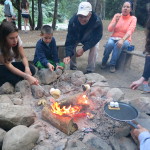 Every summer we have an all-parish camping trip at the Santa Lucia campground in Big Sur, right on the river. The weekend includes swimming, singing and s’mores—as well as a group dinner and informal Sunday morning Eucharist at the outside chapel at the campground. You can find more info here and sign up here!
Every summer we have an all-parish camping trip at the Santa Lucia campground in Big Sur, right on the river. The weekend includes swimming, singing and s’mores—as well as a group dinner and informal Sunday morning Eucharist at the outside chapel at the campground. You can find more info here and sign up here!
Parish House Project Update
 Come one, come all to hear an update on the Parish House project, Sunday June 17th at 10:10 am. We’ve been discerning, planning and working for years now towards a new building that will both serve the church and offer affordable senior housing in the community. We’ll be sharing about where we are in the process of getting permits, looking towards funding, and the overall timeline for the project.
Come one, come all to hear an update on the Parish House project, Sunday June 17th at 10:10 am. We’ve been discerning, planning and working for years now towards a new building that will both serve the church and offer affordable senior housing in the community. We’ll be sharing about where we are in the process of getting permits, looking towards funding, and the overall timeline for the project.
Summer Book Group
Our Summer Book Group began June 10 with a discussion of Chapters 1 and 2 of Accidental Saints: Finding God in All the Wrong People. Nadia Bolz-Weber is a Lutheran minister in Denver, a two-time New York Times bestselling author, and a former standup comic. In her book she shares stories of her life and work pastoring House of All Sinners and Saints, stories that help us to see God in unlikely situations and in people who society have typically dismissed.
The Summer Book Group schedule is:
- June 24 — Chapters 3-5
- July 1 — Chapters 6-8
- July 8 — Chapters 9-11
- July 15 — Chapters: 12-14
- July 29 — Chapters 15-16
- August 5 — Chapters 17-19




